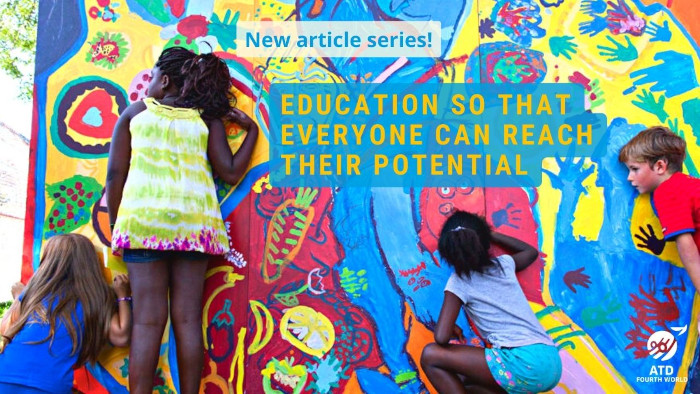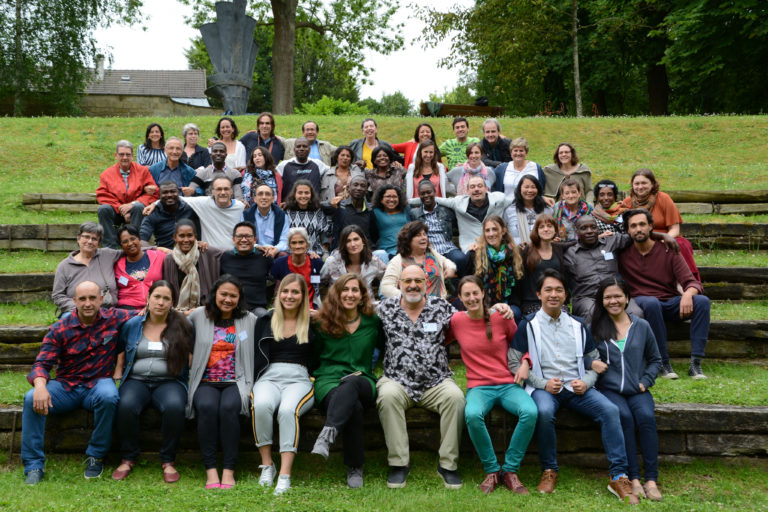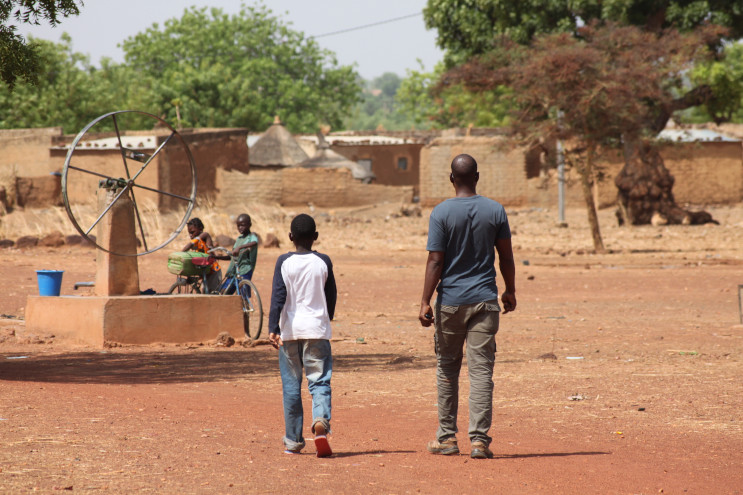An Education That Unlocks Everyone’s Potential

Starting in the early 2010s, access to quality education for all has been at the heart of the ATD Fourth World’s priorities. In this series of articles you will discover the work done by ATD Fourth World teams in the field of education.
This invitation to journey through ATD’s successes in the field of education will be published regularly. As either individual or collective success story sparked by the initiatives of an ATD Fourth World team with the children and their families and communities.
From one story to the next, we will explore the different teams that support specific aspects of children’s lives and development. One team aims to reinforce family ties, another assists with children’s schooling and academic success, while another contributes to the cultural enrichment of neighbourhood children… Each of these narratives threads together to form a vibrant framework for a society that can offer quality education for all.
“Everyone can learn if…”

Most of the stories were written during the seminar “Everyone can learn if…“, held in June 2018 at the ATD Fourth World’s international centre in Mery-sur-Oise, France. This seminar brought together teams from different countries, all involved in educational programmes in partnership with parents living in extreme poverty. This milestone seminar represented the culmination of several years of collaboration between activists, school professionals, Volunteer Corps members, and allies.
Sharing a common goal
Seminar participants shared a common goal: to seek the best conditions for the physical, emotional, social, cultural, and cognitive development for children living in poverty in their home environments. Alongside parents, communities, and relevant institutions, participants sought to develop projects that effectively guarantee the right to quality education for all.
Before this meeting, the teams involved in the seminar had been engaged for several months in their respective fields in this reflective and collective learning approach based on the “Learning from Success“1 method. This approach led them to narrate and analyse stories they had taken part in of successful local initiatives or positive educational outcomes for children.
Questions and surprises
With the help of all participants, the teams endeavoured to trace the process and understand what each story’s protagonist had done to contribute to the project’s success.
Exchanges during the seminar led to many questions and surprises, especially since participants came from different cultural backgrounds. Comparing their projects allowed some participants to realise how the actions they had devised with families stemmed from their surroundings and specific circumstances. The type of cultural practices shared with families, or the ways families relate to the school system, vary greatly from one country to another. The strong rooting of projects in their cultural and institutional context makes it impossible to reproduce them identically. However, collective analysis allowed participants to recognize several similar approaches and to identify actionable knowledge on which to base future projects.
Moussa: “family reconnection” in Burkina Faso
To kick off our series on education using the Learning from Success method, read the account of Florent Bambara, a Volunteer Corps member in Burkina Faso, in an interview with Orna Schemer.
Through this dialogue, Florent narrates the successful reintegration of Moussa, who was 13 years old and living on the streets of Ouagadougou for two years when the ATD Fourth World team met him.
“Since the 1980s, ATD Fourth World has been reaching out to children living on the streets of Ouagadougou, getting to know them and guiding them towards a better future, especially by trying to help them reconnect with their families.”
Sylvain Lestien, Florent’s teammate, added:
- “Permanent returns to the family are difficult because many obstacles exist. Often, after parents separate [as was the case with Moussa’s family], the mother, who wants to care for her child, is prevented by her new husband. Almost always, relatives do not want the child to return, fearing that the child will have picked up bad habits on the street and will corrupt their own children. So much so that the family sometimes prefers not to hope for their child’s return, knowing that welcoming them back would be a considerable risk in the eyes of their neighbours.”
In this story, Florent is able to take Moussa back to his family shortly after meeting him. Florent listened to the solutions suggested by the child himself and chose to trust them despite the uncertainty. Moussa’s grandfather, after their reunion, welcomed Moussa into the family. Florent says,
- “Today, a year after his return, he farms the land and looks after animals. His family encourages him not to return to the streets. His mother is relieved and visits him often. Within his extended maternal family, Moussa benefits from the transmission of practical knowledge and cultural values, knowing he’s safe in the village and that he eats well. He’s back in school, although it’s challenging because he’s older than the other students.”

Orna guides Florent Bambara in recounting this story, having him describe in detail the steps of Moussa’s support: How did he approach him? How did he earn Moussa’s trust? What actions did he take? What did he say? What did they do together?
Through this dialogue, we invite you to discover the “Learning from Success” method that guided the production of our members’ stories, as well as Moussa’s story itself. By doing so, we hope to share with you new tools to identify your successes and to learn from them in order to work towards overcoming poverty together!
Read the account of Moussa told by Florent Bambara on our blog
For the following narrative in our series, we will be travelling to Haiti, where the Welcome Babies program team will describe how they work alongside families in extreme poverty to benefit their young children.
- Jona Rosenfeld: “LFS is a methodology for learning from and for actions that had worked in the past, as a basis for deploying them in the present and thus for the future (…) this all started when we had conducted a joint workshop together with members of the Volunteer Corps in France in 1987 and which had been published by ATD and co-authored by Brigitte Jaboureck a member of Volunteer Corps and myself named “Emergence from Extreme Poverty”. There, we described modes of action which in the past had been successful in enabling families to emerge from poverty.”

